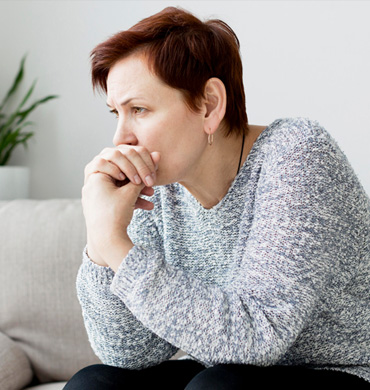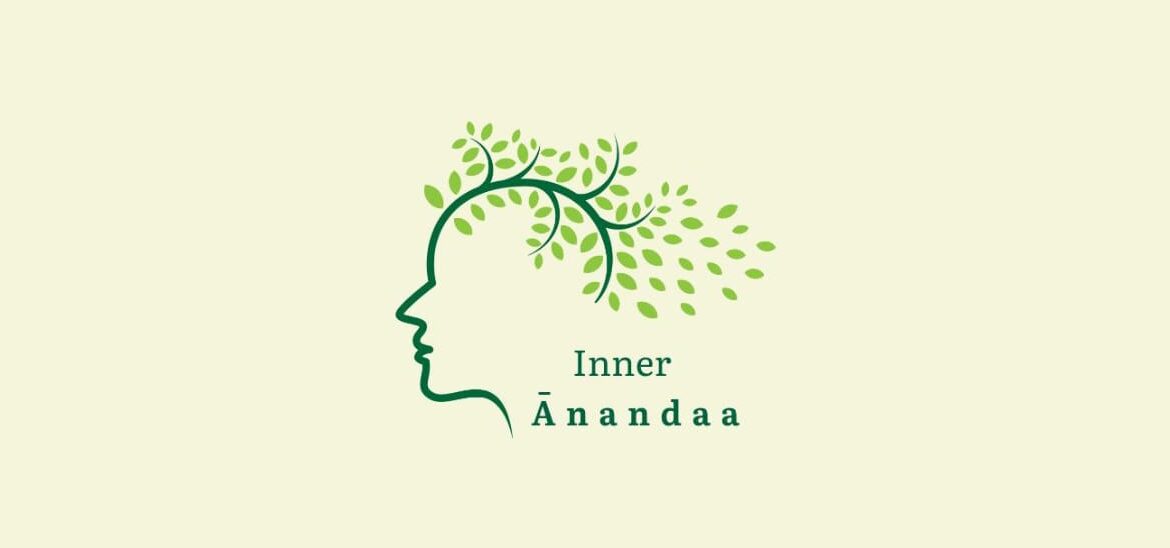
Understanding Anxiety: Causes, Symptoms & Treatments
In today’s fast-paced world, anxiety has become a common emotional experience. Many people feel anxious before an exam, a job interview, or during a life change. But for some, anxiety becomes persistent, overwhelming, and disrupts daily life. Understanding anxiety—its causes, symptoms, and treatments—is essential for managing it effectively and seeking timely help.
At InnerAnandaa, Dr. Kripa , a well-trusted psychologist, feels that awareness of mental health is the beginning of healing. Let’s find out what anxiety is and how to deal with it.
What Is Anxiety?
Anxiety is a normal reaction to stress. Anxiety is a state of dread, apprehension, or unease that can be mild or severe. Mild anxiety is normal in stressful situations, but persistent anxiety for no apparent reason may signal an anxiety disorder.
Anxiety disorders are the most prevalent of all the mental disorders and can happen to anyone—children, adults, and the elderly. It’s not a matter of “all in the head”; anxiety has repercussions for physical health, behavior, and quality of life.
Types of Anxiety Disorders
Knowledge of the various types of anxiety disorders can assist with identifying the particular difficulties a person will encounter:
Generalized Anxiety Disorder (GAD): Excessive and persistent worry about normal things even when there’s little or no cause to worry.
Panic Disorder: Frequent panic attacks with sudden intense fear often with physical symptoms such as pain in the chest or difficulty breathing.
Social Anxiety Disorder: Fear of social situations or being judged to an extreme degree that leads to social isolation and avoidance.
Specific Phobias: Significant fear of particular objects or situations (e.g., heights, flying, needles).
Separation Anxiety Disorder: Oftentimes present in children, but also occurs in adults—fear of separation from loved ones or from home.
Obsessive-Compulsive Disorder (OCD): Repetitive unwanted thoughts (obsessions) and actions (compulsions) that ease anxiety.
Post-Traumatic Stress Disorder (PTSD): Anxiety caused by a traumatic event, frequently along with flashbacks and nightmares.
Common Causes of Anxiety
Anxiety does not have one cause—it frequently develops due to a number of biological, environmental, and psychological reasons:
1. Genetics and Family History
Individuals with a history of anxiety disorders in their families are more susceptible to experiencing anxiety.
2. Brain Chemistry
Chemical imbalances in neurotransmitters such as serotonin and dopamine within the brain may affect mood regulation and heighten the level of anxiety.
3. Personality Traits
Perfectionists, over-sensitive individuals, and those with low self-esteem are likely to experience anxiety.
4. Stress and Trauma
Severe life changes (e.g., loss of job, divorce), abuse during childhood, or traumatic events may lead to anxiety disorders.
5. Medical Conditions
Chronic diseases, hormonal disorders (thyroid problems), or drug abuse may cause symptoms of anxiety.
6. Lifestyle Factors
Sleep disturbance, too much caffeine, physical inactivity, and social isolation may develop anxiety.
Symptoms of Anxiety
Anxiety comes out in many different ways—physically, emotionally, and behaviorally. Becoming aware of these symptoms is the first step towards seeking early assistance.
Physical Symptoms:
- Racing heart or palpitations
- Breathing difficulties
- Sweating or shaking
- Headaches
- Dizziness or nausea
- Muscle tension
- Fatigue or insomnia
Emotional Symptoms:
- Excessive worry or nervousness
- Feeling overwhelmed or out of control
- Irritability or restlessness
- Fear of the worst occurring
- Difficulty in concentrating
Behavioral Symptoms:
- Avoidance of situations that lead to anxiety
- Reassurance-seeking
- Obsessive behaviors (particularly in OCD)
- Social withdrawal
If these symptoms persist for over six months and disrupt daily functioning, it is recommended to see a mental health professional.
How Is Anxiety Diagnosed?
A qualified psychologist or psychiatrist will do an exhaustive evaluation, which can include:
- A comprehensive personal and family history
- Assessment of symptoms and their effect on daily activities
- Questionnaires or rating scales for screening (e.g., GAD-7, Hamilton Anxiety Rating Scale)
- Rule-out of medical etiology (through referrals, if necessary)
Dr. Kripa at InnerAnandaa practices a patient-centered and holistic strategy to gain insight into each person’s experience and implement the appropriate support plan.
Effective Treatments for Anxiety
The best news is that anxiety disorders are curable. With proper guidance, patients can control their symptoms and enjoy a productive life. Some treatment options are:
1. Psychotherapy (Talk Therapy)
- Cognitive Behavioral Therapy (CBT): Most effective therapy for anxiety. It aids the patient in changing negative thoughts and patterns of behavior.
- Exposure Therapy: Gradual exposure to the source of anxiety or object of fear to decrease fear responses.
- Mindfulness-Based Therapy: Emphasizes present-moment awareness and acceptance.
2. Medication
In certain instances, physicians may prescribe:
- Antidepressants (such as SSRIs or SNRIs)
- Anti-anxiety meds (e.g., benzodiazepines—short-term use)
- Beta-blockers (for bodily symptoms such as palpitations)
Medication must always be taken with the guidance of a physician and is frequently used in addition to therapy.
3. Lifestyle Changes
- Regular Exercise: Releases endorphins and lessens stress.
- Balanced Diet: Steer clear of too much sugar, processed foods, and caffeine.
- Adequate Sleep: 7–8 hours of good sleep enhances mental toughness.
- Mindfulness & Meditation: Activities such as yoga, slow breathing, and meditation can soothe the nervous system.
4. Support Systems
Speaking with good friends or attending support groups can ease the feeling of isolation. Emotional connection heals.
When to Seek Help
If anxiety is impacting your personal, work, or social life—don’t wait. Early intervention makes recovery simpler and more successful.
Contact a qualified psychologist such as Dr. Kripa at InnerAnandaa, who can offer evidence-based care in a secure, non-judgmental environment.
Final Thoughts
Anxiety is not weakness or shameful. It’s a signal that your mind and body are in need of care, care, and healing. With proper knowledge, skills, and professional assistance, anxiety can be managed and even be conquered.
At InnerAnadda, we’re here to help you take that first step toward better mental well-being. You are not alone—and healing is possible.




